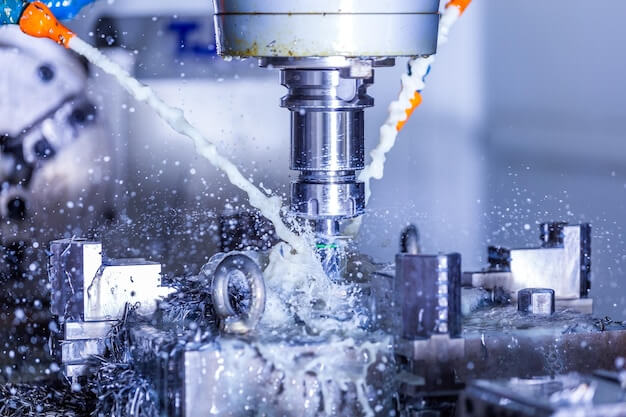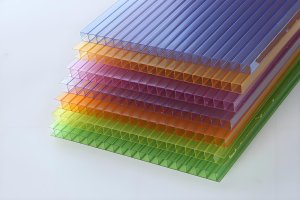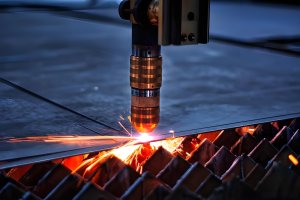In the realm of precision engineering and manufacturing, bead blasting is a surface treatment processed widely used to enhance the aesthetics of a component, strengthen its structure, or alter its function. Incorporated within Computer Numerical Control (CNC) machining operations, bead blasting has rapidly become an essential finishing process.
Bead blasting involves utilizing glass beads propelled at high velocity towards the workpiece surface without substantially altering the dimensions of the part. Executed properly within the context of CNC machining, it can significantly improve product quality while offering other valuable benefits.
Understanding Bead Blasting
Bead blasting uses specially designed equipment known as ‘blasting cabinets.’ The primary element within these cabinets are small spherical particles of glass that are projected onto the metal’s surface using compressed air technology. This creates a clean and polished exterior by removing surface impurities. In many ways, it’s like power washing your deck but on a much more precise level.
Unlike abrasive treatments that commonly remove some substantial measure of the material from the piece being treated, bead blasting maintains the integrity, size, and form of the original item with minimal subtractions. This makes it optimal for CNC machined parts where dimensional accuracy translates directly into the functionality of complex equipment or machinery.
Utilizing Bead Blasting in CNC Machining
In CNC machining, bead blasting plays a dual role—primarily as a surface finisher and secondarily as a fortifying agent. Its application extends beyond merely making components look visually appealing and glossy. It is also used to snuff out imperfections like molds, burrs, casting marks, striations, and pits left behind during the course of machining procedures.
Bead blasted finishes have a non-reflective, uniform texture achieved without any damage done both to the metallic skin of the part and its structural durability. By standardizing roughness levels across the board, bead blasting enhances the component’s fatigue strength. This occurs by eliminating stress raisers—areas where tension concentrates—thus increasing resistance against internal or external pressures.
Moreover, bead blasting provides a conducive environment for secondary finishes like coating, anodizing or painting. The micro-roughened surface helps absorb finishes better, making them stick more effectively and providing longer-lasting aesthetic finish.
Producing Quality Bead Blasted Surfaces
The quality of a bead blasted surface is primarily achieved through factors such as the size and hardness of the glass beads used, air pressure when being propelled onto surfaces, distance from workpiece, and duration of blasting. It requires significant experience in these methods to produce optimally finished surfaces consistently.
While utilizing smaller beads generates smooth and soft textures, larger ones create edgier and rougher results. Similarly, a higher degree of air pressure allows forceful impact, inducing a certain level of material removal and deeper indentations. Conversely, lower air pressures barely disturb the metal’s skin and are preferred for light cleaning operations that require extreme delicate handling.
Time is also key; cursory bead blasting may leave scratches and layers of debris behind, while overstaying might distort structural balance and hamper dimensional stability. 
In Conclusion
When properly executed, bead blasting yields numerous benefits across many industries using CNC machining – from comprehensive cleansing without chemical consequences to preparing surfaces for other treatments. While simplistic in its approach, attaining mastery in bead blasting necessitates understanding of technique management and equipment operation know-how which only comes with prolonged practice. As we continue advancing towards elevating precision engineering, bead blasting promises figures prominently in this journey, polishing our way to perfection.
Other Articles You Might Enjoy
- Innovative CNC Machining for Advanced Spacecraft Components
Introduction: CNC Machining and its role in Spacecraft Components Computer Numerical Control (CNC) machining has, over the years, proven to be one of the most integral pillars within manufacturing industries.…
- Ceramic Tooling in CNC Machining: Breaking the Myths About Durability and Performance?
CNC Machining and Ceramic Tooling: Busting the Myths Computer Numerical Control (CNC) machining is an advanced method of manufacturing where pre-programmed software controls the movement of factory machinery, giving intricate…
- CNC Machining Parts Factory: Specializing in High-Quality Steel
Introduction to CNC Machining and its Significance CNC (Computer Numerical Control) machining is a critical component in modern manufacturing, responsible for executing complex cuts and designs with absolute precision. This…






